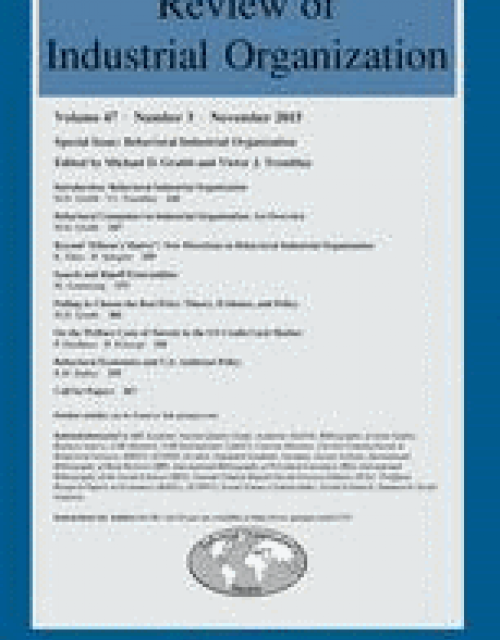Publication records
Subject(s)
Ethics and social responsibility
Keyword(s)
Business ethics, leadership, responsibilities of corporate leadership, social responsibility, organizational ethics, core purpose, change management, service management, privatization, corporate social responsibility, organizational purpose
Ulrich Homburg must have had an unpleasant déjà-vu on January 28, 2010, when hearing of headlines in Germany’s leading tabloid, Bild, about “Schaffnerin Herzlos,” the “heartless train conductor.” The board member of Germany’s national railway company, Deutsche Bahn AG (DB), and head of its passenger transportation division, was confronted with media reports about a minor who had been thrown off the train the night before by a DB train conductor. The incident happened on what turned out to be the coldest night of the winter, in one of the most deserted provincial train stations in the German state of Brandenburg. The girl was traveling without a valid train ticket. This incident was not the first of its kind. In the fall of 2008, Bahn employees had also forced several children and youths off of trains. The train company had subsequently given service personnel very clear instructions: Under no circumstances should minors be asked to leave the train. Now Homburg had to ask himself if further action was necessary.
We have successfully used this case with various different audiences ranging from MBA students to executive education. Given its rather untechnical and general perspective it can be used in a broad range of class contexts. However, the level of reflection and discussion will obviously vary according to the participant group and/or the position within a program. The case can be used to discuss topics such as: Responsible leadership and business ethics, corporate social responsibility, change management, and strategy and service management
| buy now | buy now | buy now |
Subject(s)
Finance, accounting and corporate governance
Subject(s)
Human resources management/organizational behavior
Keyword(s)
Motivation to lead, self-to-leader comparisons, self-efficacy perceptions, leader identity
Drawing on social comparison and identity literature, we suggest that individuals' comparisons of themselves to their own standards of leadership relate to their leadership motivation. We propose and test a model of motivation to lead (MTL) based on two types of self-to-leader comparisons: self-to-exemplar and self-to-prototype comparisons with respect to affiliation. In our main study, using data from a sample of 180 executives, we apply structural equation models to test our predictions. We find that self-comparisons with concrete, influential leaders of the past or present (self-to-exemplar comparisons) relate positively to MTL. We also find that self-comparisons with more general representations of leaders (self-to-prototype comparisons in affiliation) relate to MTL. Whereas the effect of self-to-exemplar comparisons is mediated through individuals' leadership self-efficacy perceptions, the effect of self-to-prototype comparisons is not. We replicate these findings in three follow-up studies using different research designs. We derive implications for theory and practice.
With permission of Elsevier
Volume
26
Journal Pages
802–820
Subject(s)
Economics, politics and business environment; Finance, accounting and corporate governance
Keyword(s)
Sophistication, naiveté, credit market, consumer exploitation
In the presence of naive consumers, a participation distortion arises in competitive markets because the additional profits from naive consumers lead competitive firms to lower transparent prices below cost. Using a simple calibration, we argue that the participation distortion in the US credit-card market may be large. Our results call for a redirection of some of the large amount of empirical research on the quantification of the welfare losses from market power, to the quantification of welfare losses that are due to the firms’ reactions to consumer misunderstandings.
© Springer Science+Business Media New York 2015. With permission of Springer
Volume
47
Journal Pages
341–354
Subject(s)
Economics, politics and business environment
Keyword(s)
Primary school enrollment, school lunches, natural experiment, ITT
At the end of 2001, the Indian Supreme Court issued a directive ordering states to institute school lunches – known locally as "midday meals" – in government primary schools. This paper provides a large-scale assessment of the enrollment effects of India's midday meal scheme, which offers warm lunches, free of cost, to 120 million primary school children across India and is the largest school feeding program in the world. To isolate the causal effect of the policy, we make use of staggered implementation across Indian states in government but not private schools. Using a panel data set of almost 500,000 schools observed annually from 2002 to 2004, we find that midday meals result in substantial increases in primary school enrollment, driven by early primary school responses to the program. Our results are robust to a wide range of specification tests.
© The editors of The Scandinavian Journal of Economics 2015
Volume
117
Journal Pages
1176–1203
ISSN (Online)
1467-9442
Subject(s)
Economics, politics and business environment
Keyword(s)
Competition, Germany
Secondary Title
The handbook of competition economics 2016
Pages
57–59
Subject(s)
Economics, politics and business environment
Volume
2015
Journal Pages
1–13
Subject(s)
Ethics and social responsibility; Strategy and general management
Keyword(s)
Stakeholder route, sustainability management
Secondary Title
JFBS annual book 2015: Sustainability and strategy
Pages
15–43
ISBN
978-4805110706
Subject(s)
Economics, politics and business environment
Keyword(s)
Payment card networks, interchange fees, two-sided markets
JEL Code(s)
L11, G21, L42, L51, K21
Pages
34
Subject(s)
Marketing
Keyword(s)
Cross-selling, personal selling
JEL Code(s)
M310
Journal Pages
62–65
